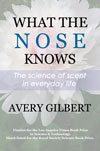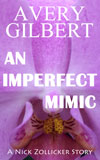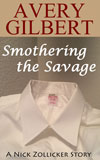
Mandy Aftel has hit another one out of the park. After scoring with Essence and Alchemy, she drills one into the upper decks with Fragrant: The secret life of scent. Her new book is built around five raw materials of natural perfumery: cinnamon, mint, frankincense, ambergis, and jasmine. Chapter by chapter she shares her working knowledge of the individual materials and places each one in historical and cultural context. We learn how to use them (guided practical formulations are provided) but we also learn about Mandy: her approach to life, meaning, and creativity. We discover her amazingly vibrant aesthetic, and how it grew naturally (so to speak) from her Berkeley environs. It is artisanal and whimsical. It takes pleasure in the simple deeply observed. It focuses on the quality of raw materials and the authenticity with which they are experienced. Think Bernard Maybeck and Alice Waters.
In each chapter, Mandy effortlessly transitions from an emotional and intellectual immersion in scent to the practical means of buying, sampling, and blending essential oils. Her personal fragrance fantasy land is a Peaceable Kingdom—in one category of scent after another she steers away from the sharp and overpowering and favors materials with softer impressions that lend themselves to blending.
Mandy imbibes the cultural and historical emanations of scent as enthusiastically as she inhales the essential oils themselves. She seeks out exotic materials and rare perfumery books with the same thirst for experience. As a scent scientist and fellow bibliophile, I appreciate this and applaud it, even as my personal interest in the intellectual history of smell leans more to philosophical treatises and natural history than to the formula books and practical guides that Mandy favors. But this is a matter of taste.
The real difference between Mandy and me is one of temperament. For her, enthusiasm and passion drive creativity. For me, the search for pattern and motive compels description, quantification, and analysis. My joy comes from tracing a new regularity of behavior or revealing an unsuspected piece of natural history. Hers comes from arranging a beautiful experience for others to share.
Does the way of the scientist not involve creativity and inspiration? Of course it does. Does the way of the perfumer not involve measurement and precision? Of course. But where Mandy revels in mystery, historical echoes and parallels, I thrill to clarifying the underlying psychobiology of sensory experience.
Throughout human experience, the allure of ephemeral smells and flavors was potent enough to change the course of history. Mandy vividly describes how the discovery of scents and spices drove early Europeans to take great risks in exploration, trade, and warfare. Not that she would put it this way, but the history of spice and perfume is inseparable from the development of capitalism. To celebrate one is to celebrate the other. No wonder the social frivolity of scent and perfumery’s exploitation of natural resources have been favorite targets for leftists and greens. Mandy’s Berkeley-based aesthetic sits uneasily on this cultural fault-line.
Mandy is an exponent of “authentic luxury” which she defines as psychological engagement with the honest immediacy of sensory experience. In this, she aligns herself with locavorism and Alice Waters’ Slow Food movement. I, too, encourage people to expand their sensory horizons, to stop and savor the world around them. But mindful cultivation of one’s sensory experience is a stone’s throw from fatuity. Those who can afford it thrill to the localness of their salad greens and grilled lamb. Those in a lower tax bracket can be seen across the street from Chez Panisse, waiting in line for pizza at The Cheese Board Collective. For them, the forty-minute wait isn’t a hindrance (few people in Berkeley are deadline-driven); rather, it serves to authenticate the sensory superiority of their pizza experience. Here is the Cheese Board’s pizza offering for tomorrow (the day of Fragrant’s publication): Crimini mushrooms, onion, mozzarella and Campo de Montalban cheese, arugula (Heirloom Organic Garden of Hollister) in a lemon dressing. Mr. Dino, my local purveyor of finest quality pizza back in New Jersey, would consider a forty-minute wait a failure of customer service, as would his deadline driven customers. Heirloom organic arugula would elicit from Mr. Dino a blank stare.
Throughout Fragrant, Mandy celebrates the act of discrimination, the exercise of a knowledgeable palate upon selected raw materials of experience. Training one’s nose (and brain) to find the nuanced differences in a series of ambergris samples can be revelatory; learning how to blend ambergris with other materials can, as Mandy illustrates, be a creative project akin to learning how to paint in water colors. Yet I can’t help but wonder whether for every talented Mandy Aftel there are ten Randy Marshes finishing every dish “with a little crème fraîche.”
Mandy’s facility in reading character is the talent of the clinical psychologist, one she re-deploys with respect to scent: she listens to how an oil presents itself and how it reacts with others. In her fascination with the symbology of scent, the meanings of its folklore and myths, Mandy takes as her aesthetic scope the entire scented world and our experience of it—human involvement with fragrance from prehistory onward. Her aesthetic compromises, in Wallace Stevens’ phrase, “the whole of harmonium.” She is the world’s first Jungian Perfumer.




No comments:
Post a Comment